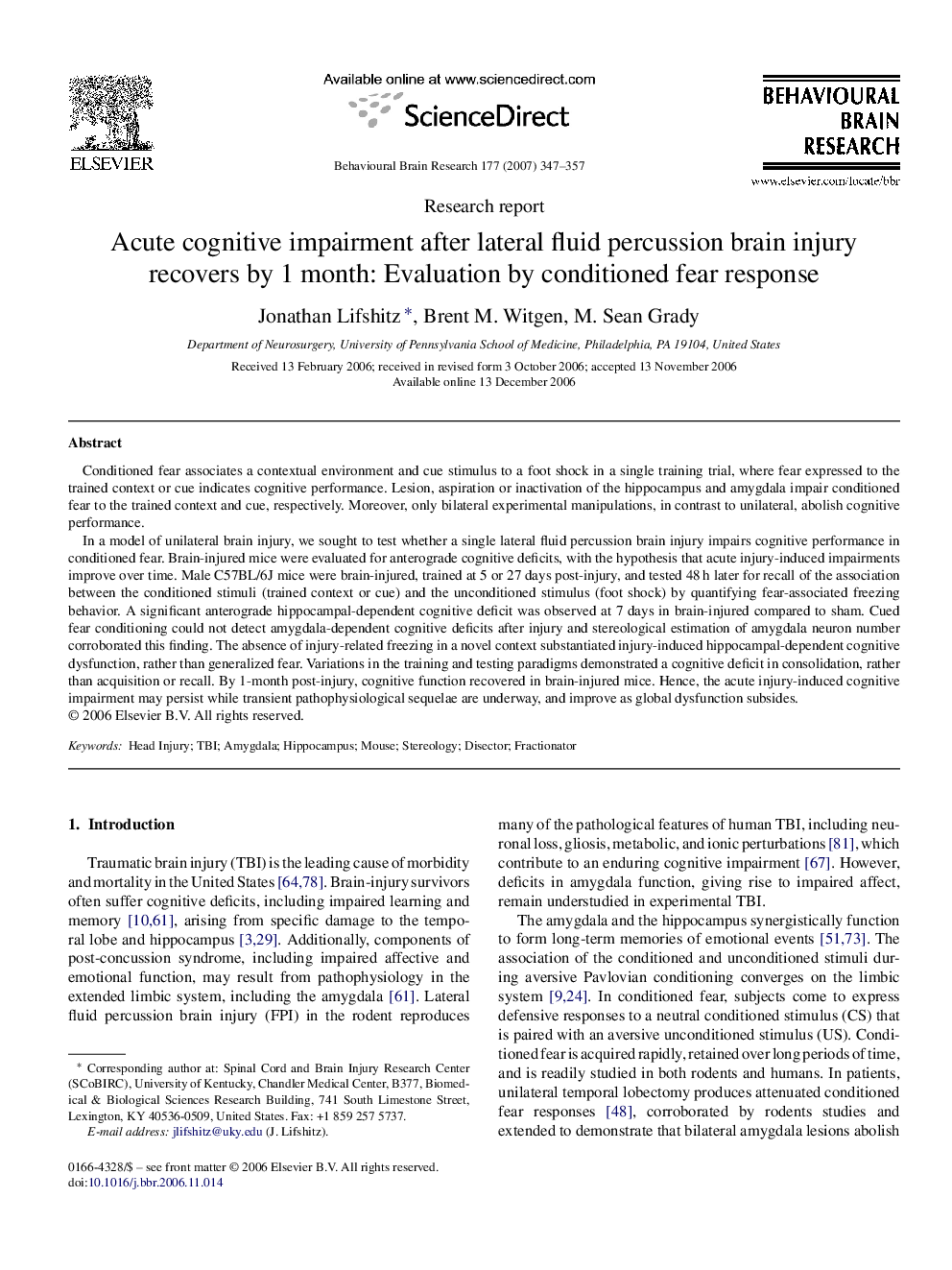| Article ID | Journal | Published Year | Pages | File Type |
|---|---|---|---|---|
| 4315991 | Behavioural Brain Research | 2007 | 11 Pages |
Abstract
In a model of unilateral brain injury, we sought to test whether a single lateral fluid percussion brain injury impairs cognitive performance in conditioned fear. Brain-injured mice were evaluated for anterograde cognitive deficits, with the hypothesis that acute injury-induced impairments improve over time. Male C57BL/6J mice were brain-injured, trained at 5 or 27 days post-injury, and tested 48Â h later for recall of the association between the conditioned stimuli (trained context or cue) and the unconditioned stimulus (foot shock) by quantifying fear-associated freezing behavior. A significant anterograde hippocampal-dependent cognitive deficit was observed at 7 days in brain-injured compared to sham. Cued fear conditioning could not detect amygdala-dependent cognitive deficits after injury and stereological estimation of amygdala neuron number corroborated this finding. The absence of injury-related freezing in a novel context substantiated injury-induced hippocampal-dependent cognitive dysfunction, rather than generalized fear. Variations in the training and testing paradigms demonstrated a cognitive deficit in consolidation, rather than acquisition or recall. By 1-month post-injury, cognitive function recovered in brain-injured mice. Hence, the acute injury-induced cognitive impairment may persist while transient pathophysiological sequelae are underway, and improve as global dysfunction subsides.
Related Topics
Life Sciences
Neuroscience
Behavioral Neuroscience
Authors
Jonathan Lifshitz, Brent M. Witgen, M. Sean Grady,
